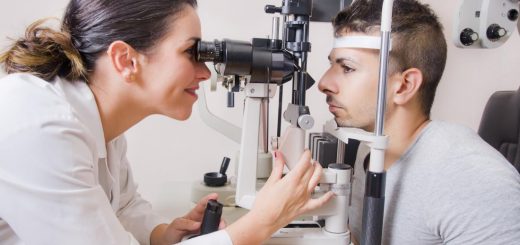The Real Truth Behind Sex Addictions
We hear a lot of stories about people from all walks of life being diagnosed with sex addictions, with arguments from both sides on whether this is a real condition or not. Those who seek to dismiss this as a real issue argue that it is simple a vain attempt to legitimize what, in their mind, is simply irresponsible or greedy behaviour. Those who argue that sex addictions are real claim that deniers are unaware of or indifferent to the emotional pain frequently reported by both those who consider themselves sex addicts and their loved ones.
Compulsive sexual behaviour is defined as a condition in which an individual cannot manage their sexual behaviour. Persistent sexual thoughts interfere with their ability to work, maintain relationships and complete their daily activities. However, the American Association of Sexuality Educators, Counselors and Therapists (AASECT) published guidelines advising that sex addiction and porn addiction are not diagnosable psychological disorders due to a lack of empirical evidence.
This article seeks to understand compulsive sexual behaviour, including its symptoms and treatments, and the controversies around its diagnostic criteria.
What Is An Addiction?
The American Psychiatric Association (APA) describes addiction as a condition that causes “changes in the areas of the brain that relate to judgment, decision making, learning, memory, and behaviour control.” These changes can be visible on brain scans. However, the APA further defines addiction as a dependency on a substance and not an activity.
When looking at people with compulsive sexual behaviours, we notice that there is a tendency for repetitive sexual activities becoming a central focus of the person’s life, to the point of neglecting health and personal care or other interests, activities, and responsibilities. What’s more, the person shows continued repetitive sexual behaviour despite adverse consequences or deriving little or no satisfaction from it, and also despite numerous unsuccessful attempts to significantly curb repetitive sexual behaviour.
One of the major difficulties in diagnosing compulsive sexual behaviour is the fact that we are all wired differently when it comes to sex drive. As a result, someone may consider their partner’s behaviour to be sexually compulsive only because they have a higher libido.
What Are Some Recognizable Signs of a Sex Addiction?
While a person’s behavior varies when considering sexual interests, studies have shown that sex addicts may persistently use pornography, or may fixate on different sexual practices. Some people might experience an overwhelming urge to masturbate, while others may feel a compulsion to engage in sexual intercourse with several different partners a day. It is these variations that make the condition that much harder to define.
Other activities that can sometimes have a link with compulsive sexual behaviour include:
- Compulsive masturbation
- Multiple affairs, sexual partners, and one night stands
- Practicing unsafe sex with multiple partners
Complications
Even though diagnosing compulsive sexual behaviour is still controversial, the condition can still have a severe impact on people who engage in it and those around them. For instance, untreated compulsive sexual behaviour can result in intense feelings of guilt and low self-esteem. Some people may develop severe anxiety and depression. It can also lead to family and relationship problems, including breakups, financial problems and a high risk on contracting and passing on sexually transmitted infections.
What Causes Compulsive Sexual Behaviour?
The causes of the condition remain unclear. There are some theories that state that compulsive sexual behaviour shares the same reward system and circuits in the brain as substance addiction. However, there is no empirical evidence that supports this. Others state that underlying mental health conditions, such as depression, may also trigger compulsive sexual behaviour. Different mood states, including sadness, loneliness, and happiness, might also lead to an inability to control sexual behaviour in people with the condition.
Diagnosis
As stated above, there is an ongoing debate regarding the diagnostic criteria for compulsive sexual behaviour. According to the DSM-5, compulsive sexual behaviour is not a formal diagnosis, according to the. The APA suggest that this is due to a lack of evidence supporting its viability as a medical condition. However, the WHO included compulsive sexual behaviour in the ICD-11.
The increasing number of examples of compulsive sexual behaviour and its consequences have expanded the discussion of the disorder as a legitimate mental condition. However, more empirical evidence is necessary before major health authorities add compulsive sexual behaviour as a standalone diagnosis.
How is it Treated?
Compulsive sexual behaviour can be difficult to treat, as a person may rationalize their behaviours and thought patterns. People who engage in compulsive sexual behaviour may deny that there is a problem. Current treatment options aim to reduce mental health symptoms and manage any excessive urges to engage in sexual relations. These methods also encourage the nurturing of healthy habits and relationships.
The following treatment options are available:
Cognitive behavioural therapy (CBT): This type of psychological therapy provides a variety of techniques and tools that help the individual change their behaviour. CBT can equip a person to learn new positive coping skills and reduce unwanted sexual urges.
Prescription medications: These might include anti-androgens, such as medroxyprogesterone (Provera), as well as selective serotonin reuptake inhibitors (SSRIs), including fluoxetine (Prozac). While a doctor may prescribe these drugs to reduce sexual urges, the Food and Drug Administration (FDA) have not approved any medications for treating this condition.
The support of friends and family is crucial for aiding recovery from compulsive sexual behaviour. Compulsive sexual behaviour can be difficult for others to understand and tolerate, especially if it has already caused damage in relationships. However, a strong support network helps reduce unwanted sexual behaviour and may support creating a healthier approach to sex.
So, what do you think? Is sex addiction a real thing? Do you have any experience with compulsive sexual behaviour? Share your views in the comments below!





